Lec 7: Machine Level Programming: Control¶
Outline¶
- Stack Structure
- Calling Conventions
- Passing Control
- Passing Data
- Managing Local Data
- Illustrations of Recursions & Pointers
Mechanism in Procedures¶
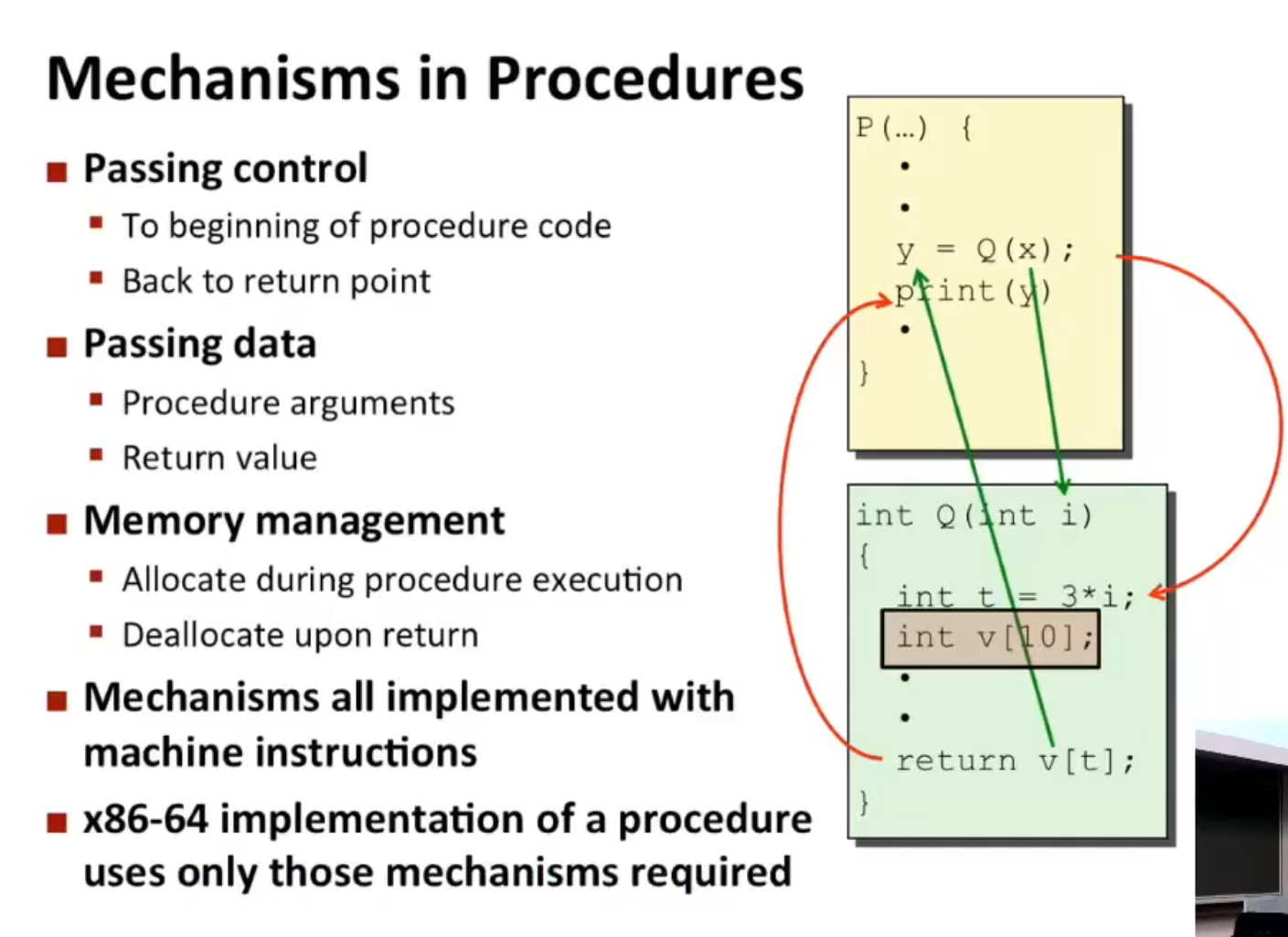
Note: reducing the overhead of procedure calls is very important (and it is well optimized in x86-64), esp. in OOP and FP, where each procedure only does a small amount of actual useful stuff.
Stack Structure¶
The top address of x86-64 stack is very high, and when the stack grows, %rsp decrements.
Stack Bottom
+---------------------------+
| |
| |
| |
| |
| |
| |
........
| |
| |
| |
| |
| |
| | <== Stack Pointer: %rsp
| |
+---------------------------+
Stack Top
Operations:
pushq [Src]- Fetch operand at
[Src] - Decrement
%rspby 8 - Write operand at address given by
%rsp popq [Dest]- Read value at address given by
%rsp - Increment
%rspby 8 - Store value at
[Dest](must be register)
Calling Conventions¶
Passing Control¶
call [Address/Label]- push
%rip(i.e. instruction pointer) onto stack - set
%ripto[Address/Label] ret- in some sense, equivalent to
popq %rip(but notice%ripisn't allowed to be accessed directly, so in reality this won't work )
Passing Data¶
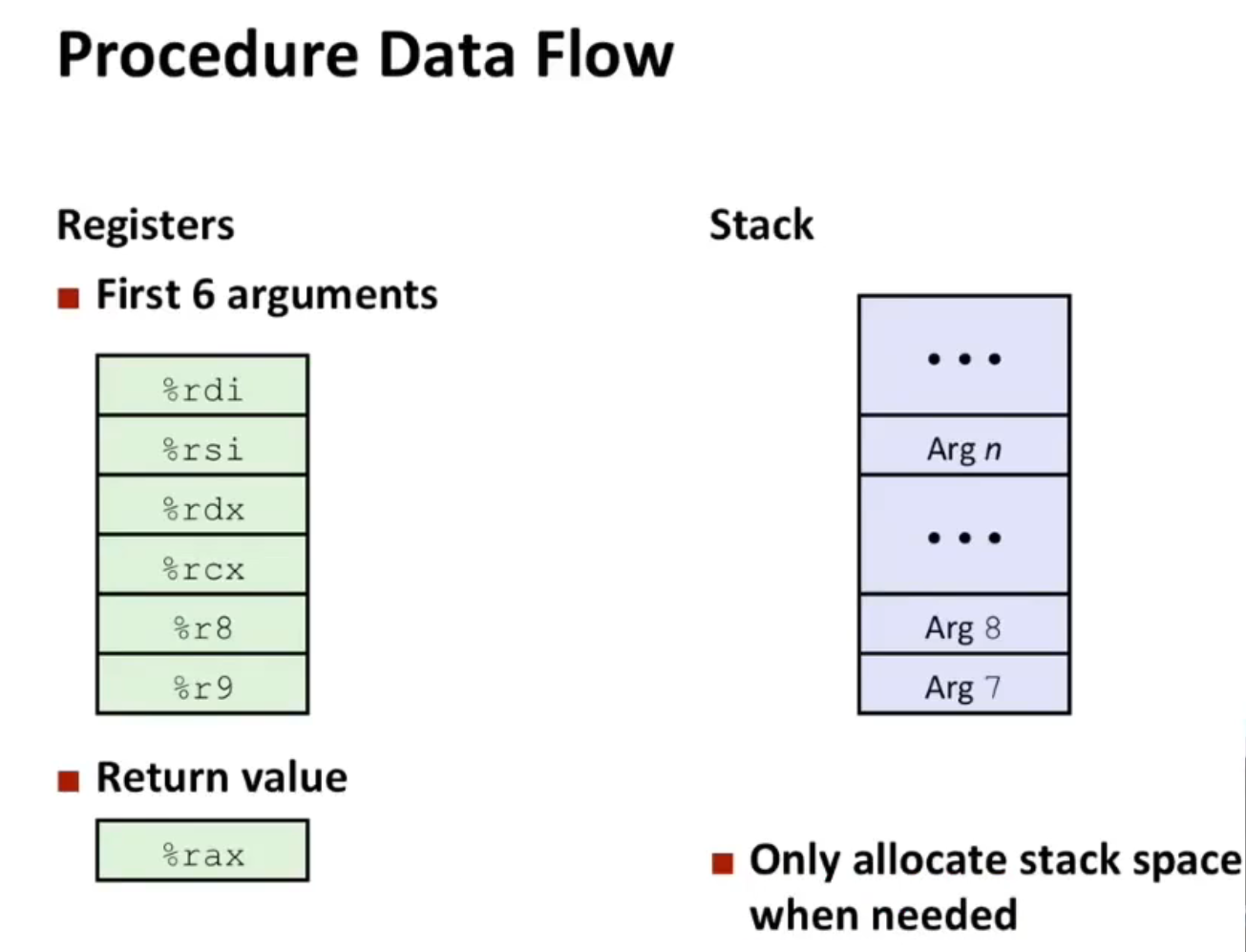
Example:
my_function:
.LFB0:
# x is %rdi, y is %rsi, dest is %rdx
.cfi_startproc
endbr64
movq %rdi, %rax # let return_val = x
imulq %rsi, %rax # return_val *= y
movq %rax, (%rdx) # let *dest = return_val
ret
.cfi_endproc
Managing Local Data: Stack Frame¶
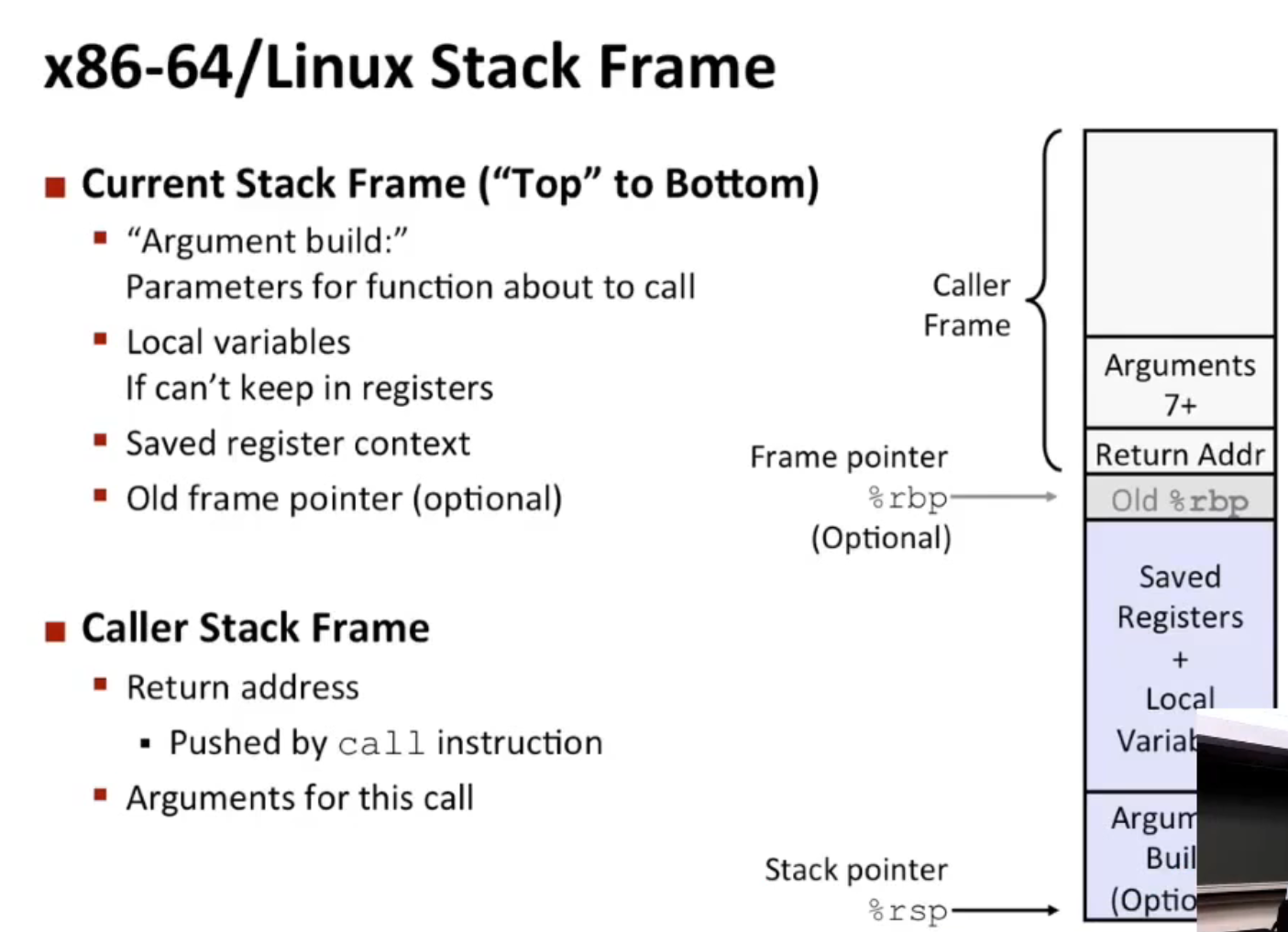
Example:
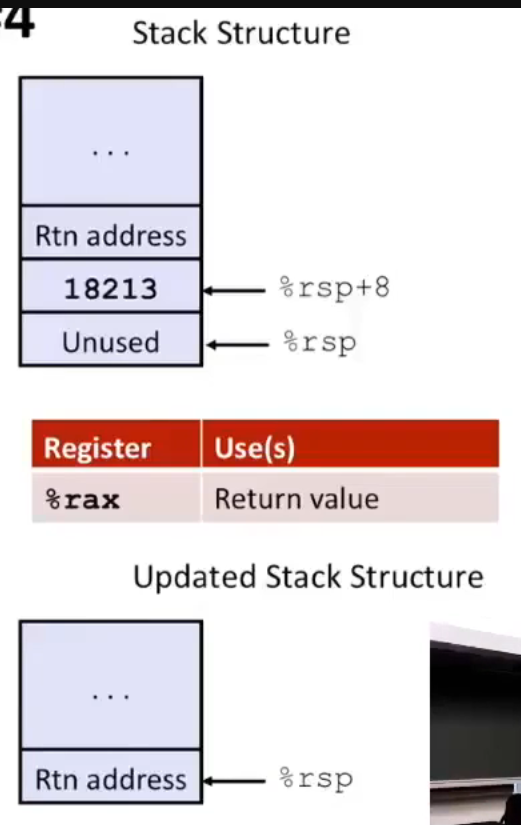
call_incr:
subq $16, %rsp # allocate 16 byte of stack space
movq $18213, 8(%rsp) # store 18213 at [7:15]
movl $3000, %esi # store 3000 at $esi
leaq 8(%rsp), %rdi # let rdi (i.e. the first argument of the function `incr`) point to [7:15]
call incr
# now, rax := rtn_val of `incr`
addq 8(%rsp), %rax # let rtn_val += [7:15]
addq $16, %rsp # free the 16 byte of stack space
ret
Caller-Saved vs. Callee-Saved¶
When
yoocallswho:
yoois the callerwhois the callee
- caller-saved
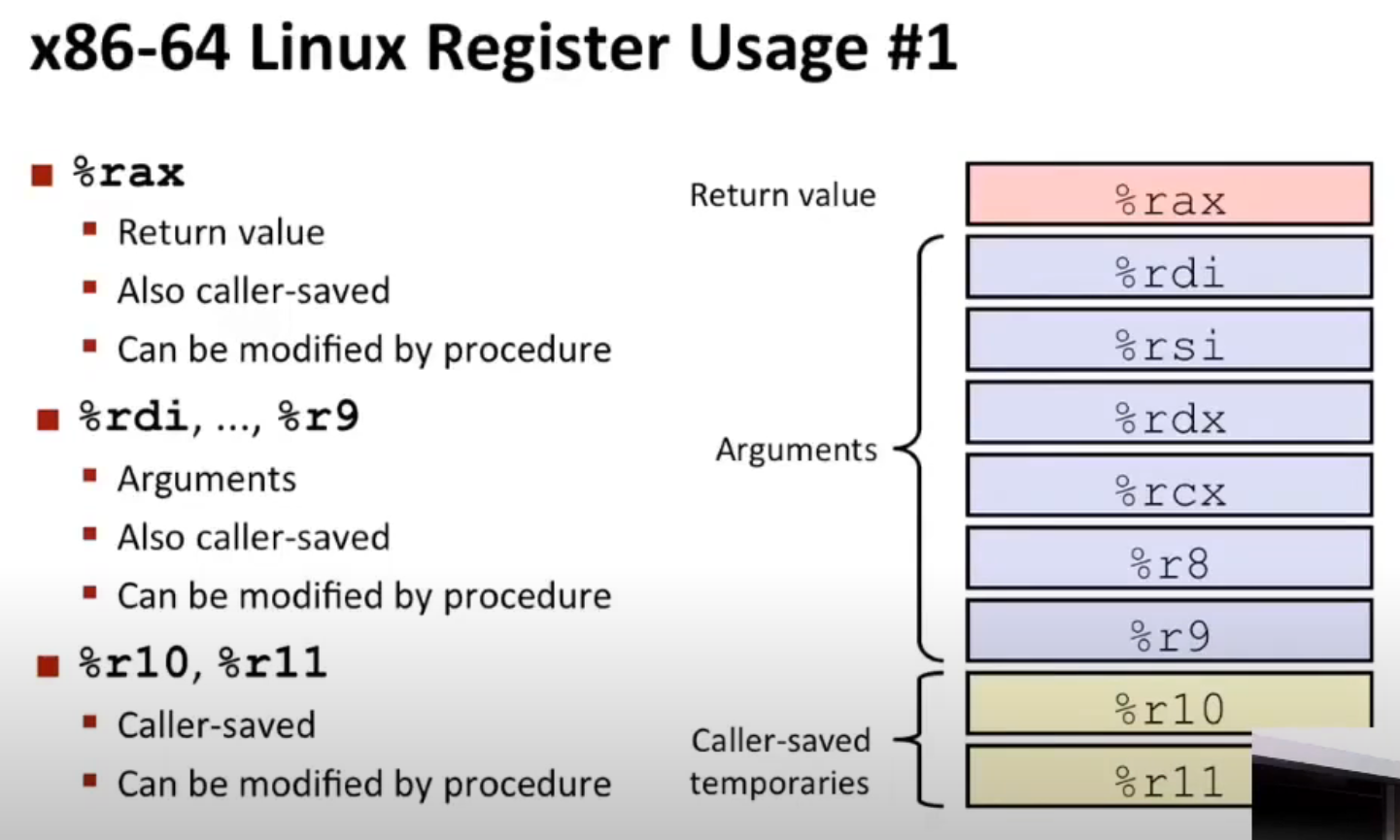
- callee-saved
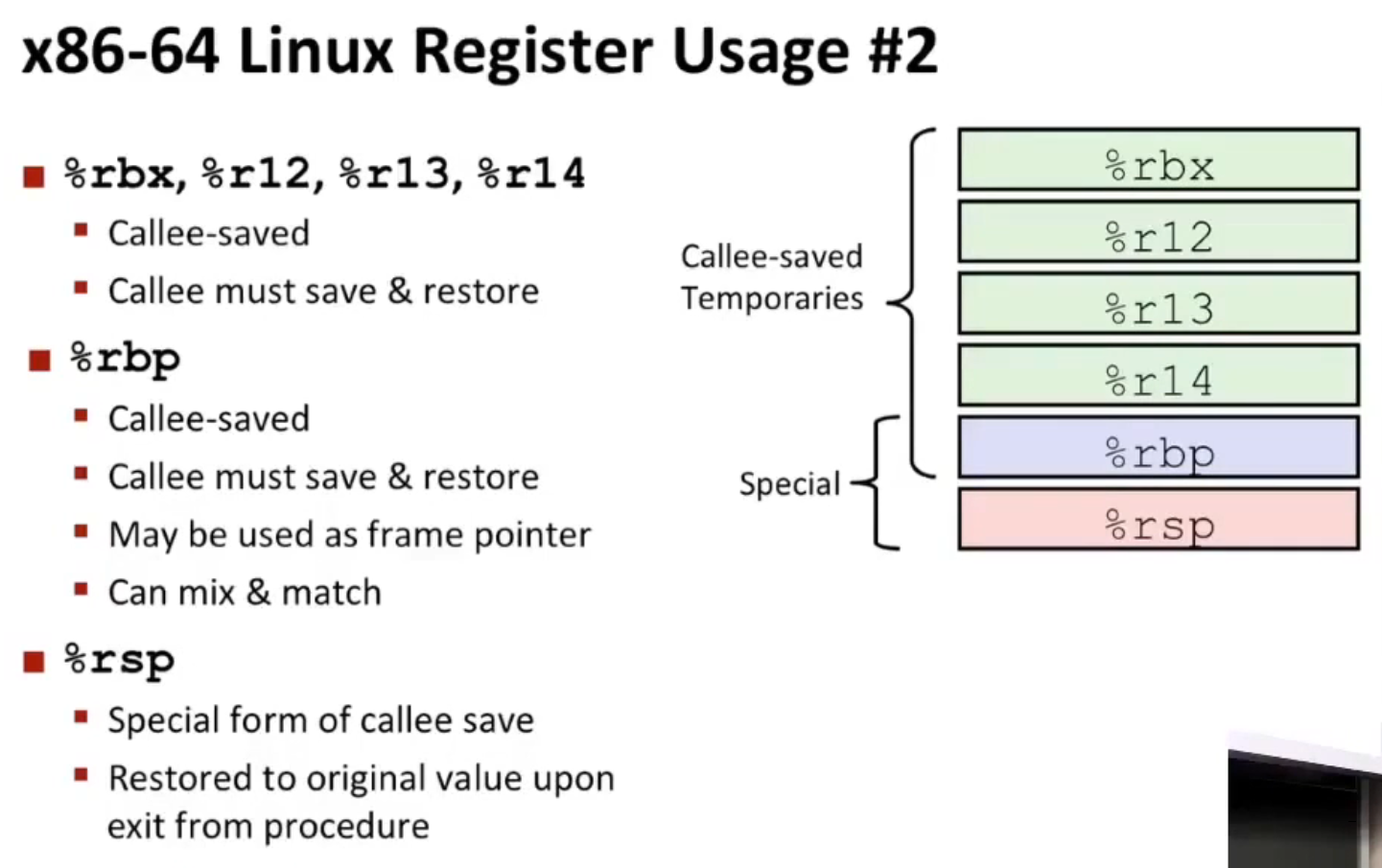
Example:
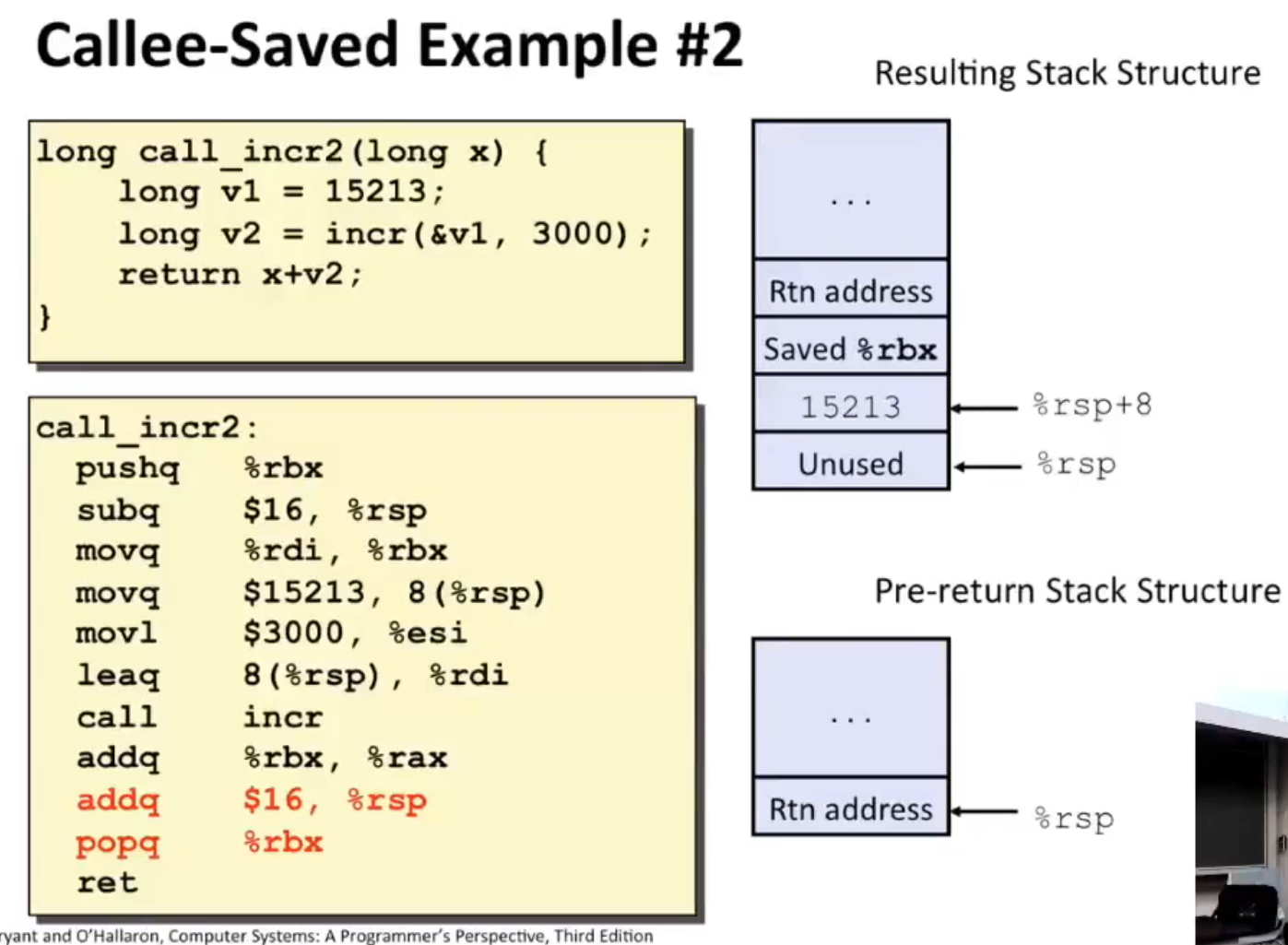
In this example, call_incr2 want to use %rbx. Since %rbx is callee-saved register, call_incr2 should save %rbx in its own stack frame.
Recursive Function¶
Recursive function is not too different from non-recursive ones.
Example: pcount_r¶
pcount_r:
movl $0, %eax
testq %rdi, %rdi # i.e. rdi&rdi
je .L6
pushq %rbx # callee-saved
movq %rdi, %rbx
# Note: operations involving `%e..` will automatically set the higher 32 bits of `%r..` to 0
andl %1, %ebx
shrq %rdi
call pcount_r
addq %rbx, %rax # %rax is pcount_r(...),
# %rbx is (x&1)
popq %rbx # callee-saved
.L6:
ret